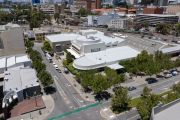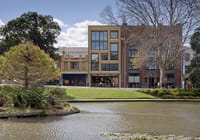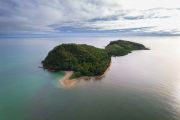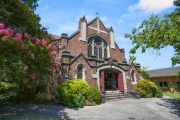Japanese-owned Icon steps up on development pipeline
Icon Developments, owned by Japanese construction giant Kajima, is stepping up its expansion in the local market, taking on a fresh office project in inner-city Melbourne while expanding its non-bank lending business.
The developer has flagged plans for an $80 million office tower in trendy Cremorne, in the inner-east, through a joint venture with the site owner Zagame Group. Icon itself, along with Kajima and Zagame will all take up space for their respective headquarters in the new development at 116 Cremorne Street. The site is occupied by car dealership Lotus and will become part of Icon’s portfolio of long-term hold assets.
As well, Icon has struck a deal to finance the development of an office in nearby Collingwood being developed by private player Peregrine Projects. The building at 88 Langridge Street is under construction with Kajima-owned builder Minicon and will be delivered in the first quarter of 2022. Co-working hub CreativeCube.Co has been secured as an anchor tenant for that project.
“These two transactions show Icon’s unique ability to fill a gap in the market servingfunctions as both a developer and capital partner. Our debt financing capabilities align with the growing trend away from traditional bank lending,” Icon Developments chief executive Matthew Bourke said.
Icon has around $140 million of debt finance in the Victoria market, including with an office tower project at 627 Chapel Street being developed by Goldfields and the Park House apartment project, being developed jointly by Salta Properties and the Smorgon family, overlooking the Yarra River in Abbotsford.
Icon Developments operates separately to the construction business Icon Co, and has a range of residential and commercial developments in Melbourne, Sydney and Canberra. Five years ago the Icon businesses were given a lift when one of Japan’s largest builders, Kajima Corporation, took control. Kajima subsequently took over another mid-tier builder, Cockram, and merged it with Icon.
Icon’s construction arm has been embroiled in cost disputes after cracking was discovered in late 2018 at the 36-level Opal Tower it built in Sydney Olympic Park, forcing the evacuation of residents.
Mr Bourke said Icon’s Japanese parent was keen to expand in the Australian and New Zealand markets.
“Its construction, development and finance businesses have enjoyed a solid 2020 and will look for growth into 2021, as a developer particularly in the residential and mixed-use sector,” he told The Australian Financial Review.
“We will also continue to explore lending opportunities where we can play a role as either developer, builder or both.”
“Both of our newly announced projects are in city fringe locations, a market we believe will be supported in the medium-longer term as companies continue to decentralise out of the CBD.”
Icon recently divested a development project in Richmond, selling the site for more than $19 million after gaining planning approval an $80 million mixed-use building.











